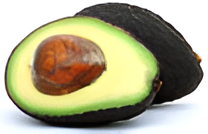- Excessive vitamin D and/or calcium supplementation, especially without sufficient magnesium.
- Medication side effects (in addition to the ones mentioned above)
- Diuretics (electrolyte loss)
Acid-suppressing medications, such as PPIs
- Food sensitivities, especially dairy and gluten – consider an elimination trial of both.
- Low serotonin
- Lack of physical activity
- Lack of insoluble fiber
- Nerve damage (a distinct possibility with patient’s diagnosed with Muscular Sclerosis)
Many autoimmune dynamics are triggered and sustained due to gut dysfunction; stool testing can determine gut dysfunction.
- Sufficiency of beneficial bacteria. Bifidobacteria specifically can be beneficial for constipation if levels are low.
- High levels of certain bacteria can contribute to constipation (e.g., Methanobrevibacter smithii)
- Digestive secretion sufficiency is needed (e.g., stomach acid, digestive enzymes, and bile) – given your need for B12 injections, insufficient stomach acid, which could certainly contribute to overall low motility.
- Overgrowths of commensal bacteria or fungi (e.g., candida)
- GI Inflammation
Ways to treat constipation:
- Take magnesium. This is important! Most Americans are deficient in magnesium. And my experience is that this is more important and more powerful than the typical solutions we might recommend for constipation (e.g. water and fiber – which are indeed included below). In addition, consult with a functional medicine practitioner, so they can educate you on the most important magnesium to take since it is several different kinds.
Foods high in magnesium (e.g. halibut, almonds, spinach, cashews, seaweed). Even if they do, the magnesium content in many plant foods has plummeted rapidly since the mid-1900s due to over-farming of the same soil. We will choose a magnesium for you, and you may benefit from 400-800 mg magnesium citrate each evening after dinner. Magnesium works for bowel movements because it’s what your body naturally uses to move them along in the first place (in a natural wave-like muscle movement all along the GI tract called peristalsis). Many times, chronic constipation is just chronic magnesium deficiency. Magnesium is a particularly good idea if you have symptoms of being “bound up” or “tight” (e.g. high blood pressure, acid reflux, muscle spasms/soreness, frequent headaches, impatience).
We may try a magnesium powder that fully dissolves in hot water (my favorite brand is called Natural Calm). This allows you to enjoy a relaxing warm drink before bed that will work its peristalsis magic overnight. Taking too much might just give a short-term case of loose stools or diarrhea; you’ll just need to cut back on the dose.
- Take a daily probiotic supplement. Our guts are teaming with microbes – what I call good bugs and bad bugs. Sometimes your gut gets sluggish due to poor digestion (medically called decreased motility) or inflammation in our intestines. Beneficial bacteria help to calm inflammation and move things along. A good multi-strain probiotic is normalizing for the body. However, when you are already constipated, make sure the probiotic has a significant percentage (at least 1/3 – ideally ½ or more) of
Bifidobacterium units (usually called CFUs on the label). If the variety you choose is mostly Lactobacillus, this will likely make constipation even worse. Lactobacillus is one of the dominant bacterial species in the small intestines (which is helpful for many other concerns), but our large intestines (where stool formation happens) are overwhelmingly colonized by Bifidobacteria, so we will choose the best probiotic for you.
- Eat plenty of healthy fats. This is an overall concept that many of our clients will need to learn – and be repeatedly
 convinced of – due to intense healthmedia emphasis otherwise. Despite common myths otherwise, fat is not bad for you. In fact, a diet relatively high in healthy fat has been shown to be cardio-protective and helpful for body fat loss. Enjoy foods such as olive oil, coconut oil, avocados, wild salmon, walnuts, almond, pumpkin seeds, and eggs daily. Fat helps to move your stool along. If you have trouble digesting fats, such as being gassy or having stools that float, there are other GI issues at play. Consult with a functional medicine practitioner for more guidance.
convinced of – due to intense healthmedia emphasis otherwise. Despite common myths otherwise, fat is not bad for you. In fact, a diet relatively high in healthy fat has been shown to be cardio-protective and helpful for body fat loss. Enjoy foods such as olive oil, coconut oil, avocados, wild salmon, walnuts, almond, pumpkin seeds, and eggs daily. Fat helps to move your stool along. If you have trouble digesting fats, such as being gassy or having stools that float, there are other GI issues at play. Consult with a functional medicine practitioner for more guidance.
- Eat plant foods. Here’s one you already probably know! There is no substitute for real, food-based fiber in our diets, especially fruits, vegetables, nuts, and seeds. But realize that this is only one of several potential issues at play. Increase fiber gently, or you will likely make the issue worse. I recommend getting them “moving” with magnesium and healthy fats first. Then, you can work on slowly increasing fiber for better long-term GI flora health and motility. Note there are two kinds of fiber in our food:
- Soluble fiber helps to form a stool (adds bulking). So, it’s key for fully formed Bowel Movements and helpful for intermittent loose stools or diarrhea (think of rice, oatmeal, apples in particular) but not useful for constipation. Psyllium husks are a great natural soluble fiber supplement. Mix them up in a smoothie, stir into yogurt, or blend with a protein shake. Avoid Metamucil because it has a lot of chemicals in them.
- Insoluble fiber helps to move a stool along for easy exit (think of all vegetables, especially leafy greens). This kind of fiber is particularly helpful for constipation. Flaxseed (especially whole) is an excellent insoluble fiber source as well.
- Drink plenty of water. Fiber helps form a stool, but water is what allows soluble fiber to work its magic. Think of trying to use a dried-out sponge without water: not very effective. Here are some general tips
- Ideally, sip water throughout the day.
- Most important, drink a large glass right after rising in the morning. It’s the time of day when we are most dehydrated and most toxic.
- Hydrate well in between meals – but not during meals. Have a small glass with only a few sips of water as needed to cleanse the palate (or to take supplements). We need strong, undiluted stomach acid to have efficient digestion, and a big glass of water will significantly slow upper-GI motility (food leaving the stomach). In addition to poor nutrient absorption, this may also cause belching, bloating, distension, or acid reflux.
Visit www.optimalhealthsystems.com
Use the affiliate code: OHSAPS
For Immediate Relief from constipation: Below are suggestions, but please contact Advanced Practice Simplified for a free consultation and additional suggestions.
(3) FloraPlus,4timesaday
(3) Digest-A-Meal, (3) times a day
(1) Optimal Soft Cleanse, (3) times day


